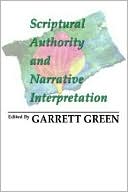

 |

|

The average rating for Scriptural Authority and Narrative Interpretation based on 2 reviews is 2 stars.
Review # 1 was written on 2007-09-25 00:00:00 John Magar John MagarDr. Yarnell's resource on The Formation of Christian Doctrine serves as a solid foundation in theological method. Chapter 1 presents a discussion of the theological method of "free church" theologians stemming from a Baptist perspective, while also examining the history of Baptist theological method. Yarnell touches on the doctrinal emphasis of each major period of Baptist history, culminating in the discussion with the distinctions of Baptist theological method. A Baptist theological method is centered on Jesus Christ as its foundation, and discipleship of Jesus Christ alone is a key element of Baptist theological foundation. Southern Baptists also strongly affirm key doctrines of the Word of God in their theological methodologies, including the inspiration, sufficiency, and authority of the Word of God. Chapter 2 examines theological methods and foundations from theologians outside of the "free church" and Baptist ecclesiology. The methods examined are from Ratzinger (a conservative Catholic), Wiles (a hospitable liberal), and Bavinck (a reasonably reformed theologian). The alternative methods are presented then compared and contrasted with the "free church" and Baptist theological methodological foundation. Some distinctives of these alternative theological methods from scholars include: Ratzinger's emphasis on an "architectonic ecclesiology", Wiles emphasis on "reasonableness" when approaching theology, and Bavinck's (somewhat bipolar) approach to the priority of philosophy and Scripture as it relates to theological method. Chapter 3 presents a free church (or believer's church) proposal to the foundation of doctrine with an extended study of the theological methodology of Pilgram Marpeck. According to Marpeck, the focus on the theologian is the church, not merely the academy. The foundational principles of Marpeck's theological method are: Jesus Christ (through His person and work), Word and Spirit (through coinherence of the Word with the Spirit) through biblical order versus human invention, and through the believer's church (consisting of congregational church polity, personal salvation, believer's baptism, and church discipline). Chapter 4 builds on the foundation of Christian doctrine to examine the development of Christian doctrine. Yarnell compares and contrasts three alternatives to a free church development of Christian doctrine. The first alternative is the classical thesis of Roman Catholic churches (seen in the councils of Trent and Vatican I). The classical thesis focuses on antiquity, church tradition, and a fixed orthodoxy in the hierarchy of the Roman Catholic Church. The Reformation and Enlightenment periods moved to a form of church development which allowed for a more fluid development of doctrine (sometimes somewhat extreme instability of doctrinal development as seen in liberalism) versus the static nature of the Roman Catholic Church. John Henry Newman proposed more of a mediating balance that allowed for doctrinal development without going to the extreme of liberalism. The chapter continues with an examination of the fixed and developing nature of doctrinal development, as well as fixing and developing tradition. The chapter concludes with examining the Christocentric teaching of the gospels, as well as the as well as the identification of the Trinity in the teaching of the gospels. Chapter 5 offers a free church (or believer's church) proposal to the development of Christian doctrine, beginning with the person and work of Jesus Christ and the written Word of God. The chapter examines Herbert Butterfield's philosophy of history with regard to the free-church. The chapter continues with a free-church theology of history focusing on the following principles: the Lord of eternity is the Lord of history, the Lord of all human beings equally, divine providence, the Lord of the fallible, the Lord of both covenants, and the Lord of all churches. Chapter 6 transitions from a theology of history to a history of theology. The free-church is focused on the cross of Jesus Christ. The chapter examines several suggested themes for the free-church history of theology, which include: Trinitarian revelation, personal salvation, and covenantal freedom. |
Review # 2 was written on 2017-04-09 00:00:00 Ryan Cave Ryan CaveYarnell preaches on the free church movement. At first he comes off as non confessional but throughout the book he simply avoids the question. As he deals with the different facets of Church Doctrine, he does a good job of describing it from several perspectives. Although I did not enjoy the emphasis on the free church movement, I did enjoy that he offers a thorough study on doctrine. |
CAN'T FIND WHAT YOU'RE LOOKING FOR? CLICK HERE!!!